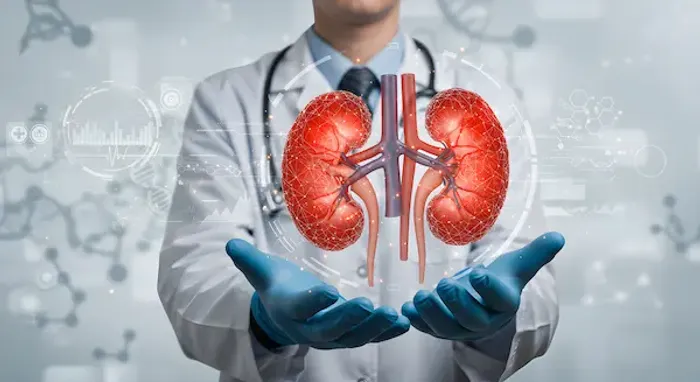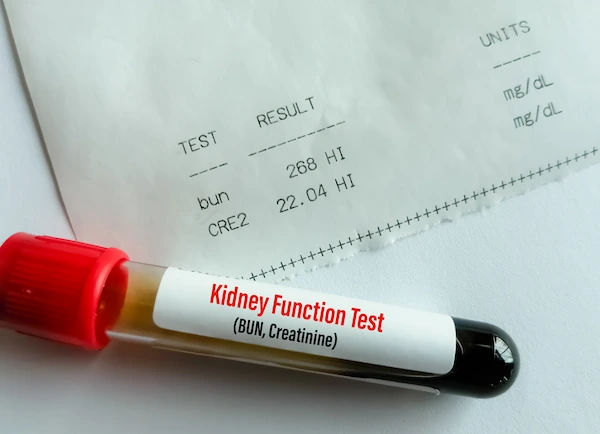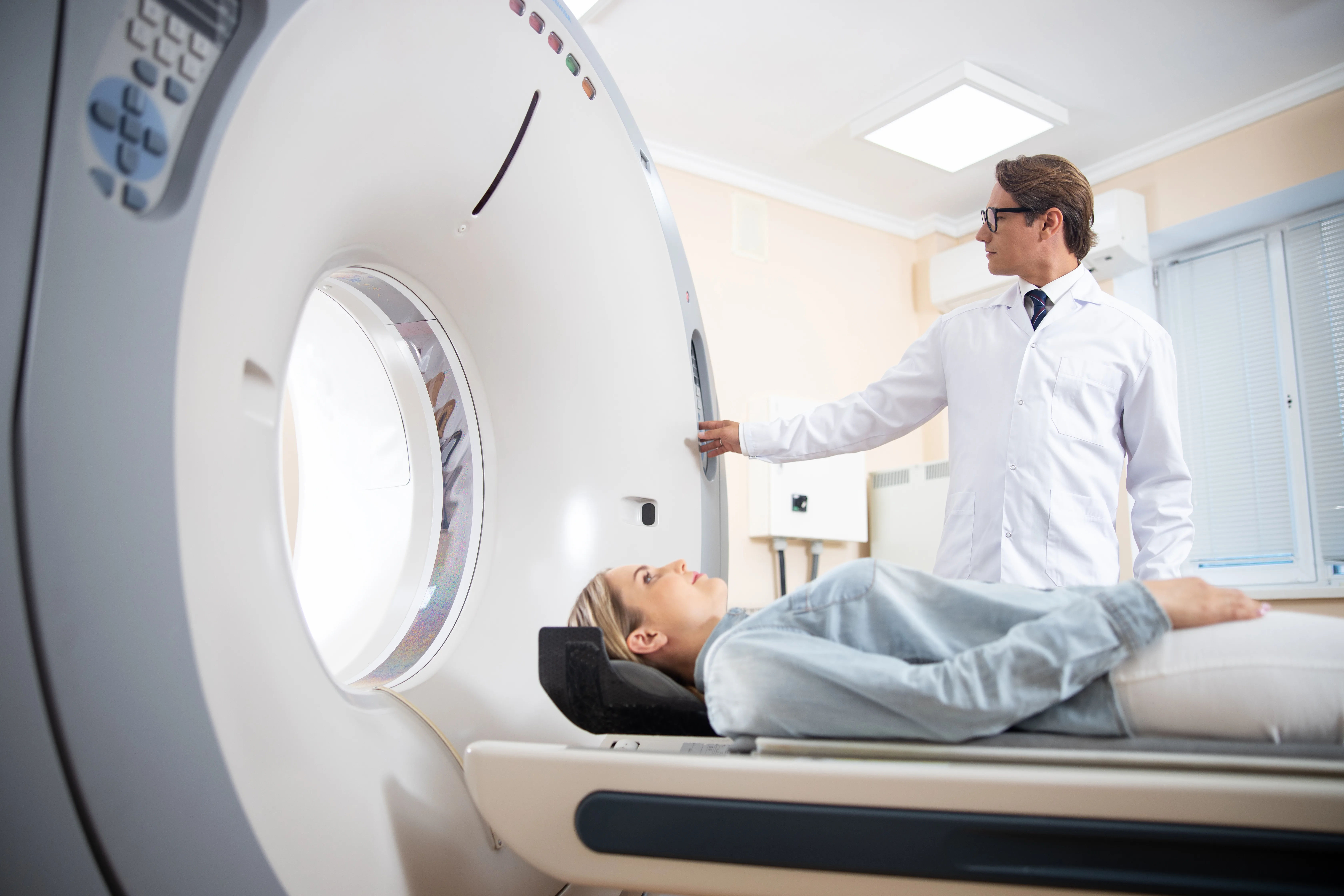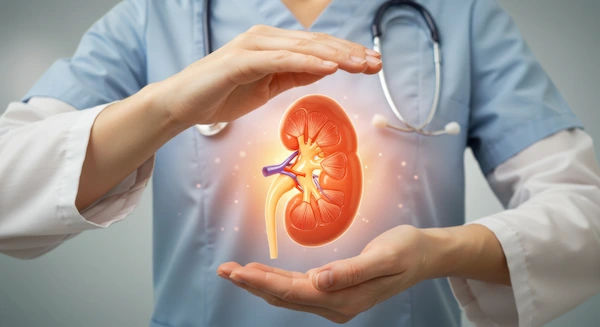Guide to Kidney Function Test
Learn everything about kidney function tests—why they matter, who should get tested, types of tests (blood, urine, imaging), what results mean, and how to protect your kidney health for the long term.

Written by Dr. M L Ezhilarasan
Reviewed by Dr. Shaik Abdul Kalam MD (Physician)
Last updated on 6th Sep, 2025

Your kidneys are your body's silent, hardworking filtration system, processing nearly 200 quarts of blood daily to remove waste and excess fluid. But when they aren't functioning properly, toxins can build up, leading to serious health complications. The challenge? Kidney disease is often a "silent" condition, showing no symptoms until significant damage has occurred. This is where a kidney function test becomes a critical tool for your health. This comprehensive guide will demystify these tests, explaining why they're important, who needs them, what the results mean, and what steps you can take to protect your renal health. Understanding these tests is your first line of defence in maintaining your body's crucial internal balance.
Why Are Your Kidneys So Important?
Your two bean-shaped kidneys, each about the size of a fist, are powerhouse organs located near the middle of your back. Their role extends far beyond just making urine. They are essential for:
- Filtering Waste: They remove toxins, excess salts, and urea (a waste product from protein metabolism) from your blood.
- Balancing Fluids: They regulate the amount of water and electrolytes in your body, ensuring your tissues receive the right amount of hydration.
- Regulating Blood Pressure: The kidneys produce an enzyme called renin, which helps manage blood pressure.
- Producing Hormones: They create erythropoietin, which stimulates red blood cell production in your bone marrow,
and activate vitamin D, which is crucial for bone health.
When kidney function declines, all these systems can be thrown out of balance, highlighting why early detection through a kidney function test is non-negotiable for long-term wellness.
What is a Kidney Function Test?
A kidney function test is not a single procedure but a suite of blood and urine tests that provide a snapshot of how well your kidneys are working. These tests are designed to measure several key indicators:
- The glomerular filtration rate (GFR) is the best overall measure of kidney function.
- The levels of waste products, like creatinine and urea, in your blood.
- The presence of protein (albumin) in your urine is an early sign of kidney damage.
- Think of these tests as a report card for your kidneys, giving your doctor vital information to assess their health and
catch potential issues long before you might feel any symptoms of kidney problems.
Who Should Get a Kidney Function Test?
Key Risk Factors for Kidney Disease
Certain conditions significantly increase your risk of developing kidney disease. Regular screening is recommended if
you have:
- Diabetes: The leading cause of kidney failure.
- High Blood Pressure (Hypertension): The second leading cause.
- Heart Disease: Cardiovascular health is closely linked to kidney health.
- A Family History of Kidney Failure.
- Obesity.
- Being over the age of 60.
Recognising the Symptoms of Kidney Problems
While often asymptomatic early on, you should speak to your doctor about a kidney function test if you experience:
- Fatigue, weakness, and difficulty concentrating.
- Trouble sleeping.
- Persistent puffiness around the eyes or swollen feet and ankles.
- Urinating more or less frequently than usual, or foamy urine.
- Blood in your urine (hematuria).
The Different Types of Kidney Function Tests
Blood Tests: A Window into Kidney Health
Serum Creatinine Test
Creatinine is a waste product produced by your muscles from the breakdown of a compound called creatine. Healthy
kidneys filter creatinine out of the blood into the urine. A high level of serum creatinine in your blood indicates that
your kidneys aren't performing their filtering job effectively. Normal levels are approximately 0.7 to 1.3 mg/dL for men
and 0.6 to 1.1 mg/dL for women, but this can vary by lab.
Estimated Glomerular Filtration Rate (eGFR)
This is the most important test. The eGFR calculates how much blood your kidneys' filters (glomeruli) can process per
minute. It's estimated using your serum creatinine level, along with your age, sex, and body size. A normal eGFR is 90 or above. An eGFR below 60 for three months or more is a sign of chronic kidney disease (CKD).
Blood Urea Nitrogen (BUN) Test
Urea nitrogen is another waste product formed when your body breaks down protein. The BUN test measures the amount of this waste in your blood. While a useful indicator, BUN levels can also be affected by dehydration, a high-protein diet, or other factors, so it's usually considered alongside the creatinine test. A typical normal range is between 7 and 20 mg/dL.
Urine Tests: Checking for Protein and Damage
Albumin-to-Creatinine Ratio (ACR)
This is a primary test for detecting early kidney damage, especially in people with diabetes. Healthy kidneys keep
albumin (a type of protein) in the blood. When kidneys are damaged, albumin leaks into the urine. The ACR test calculates the ratio between albumin and creatinine in a single urine sample. An ACR below 30 mg/g is considered normal.
Urinalysis
A dipstick test can quickly check a urine sample for a variety of markers, including:
- Protein (Proteinuria): Suggests kidney damage.
- Blood (Hematuria): Can indicate infection, stones, or disease.
- White Blood Cells: Signs of infection.
- Glucose: Can be a sign of diabetes.
Other Diagnostic Tools: Imaging and Biopsies
If blood and urine tests suggest a problem, your doctor may order:
Renal Ultrasound: An imaging test to see the size, shape, and structure of the kidneys and check for blockages like
kidney stones.
- CT Scan: Provides detailed 3D images.
- Kidney Biopsy: A small sample of kidney tissue is removed and analysed to diagnose specific kidney diseases.
How to Prepare for Your Kidney Test
Preparation is usually minimal. For a basic metabolic panel that includes creatinine and BUN, your doctor may ask
you to fast (not eat or drink anything except water) for 8-12 hours beforehand, especially if lipids are also being checked. For a urine ACR test, a random "spot" urine sample is typically all that's needed. Always follow your healthcare provider's specific instructions.
Understanding Your Kidney Test Results
What Do "Normal" Kidney Function Levels Look Like?
It's crucial to remember that "normal" ranges can vary slightly between laboratories. Your doctor will interpret your
results in the context of your overall health. Here’s a general reference:
What High or Low Values Could Mean
High Creatinine/BUN/Low eGFR: The most common interpretation is that the kidneys are not filtering waste effectively. This could point to acute kidney injury (sudden) or chronic kidney disease (long-term).
- High ACR (Protein in Urine): This is a key early marker of kidney damage, often from diabetes or hypertension.
- It's important not to self-diagnose. Many factors can influence these values. For example, serum creatinine can be temporarily elevated by a high-meat diet or intense exercise, and BUN can rise due to dehydration.
What to Do If Your Results Are Abnormal
First, don't panic. An abnormal result doesn't always mean you have permanent kidney disease. Your doctor will investigate further. This may involve:
- Repeating the tests to confirm the results.
- Ordering more comprehensive testing.
- Referring you to a nephrologist (a kidney specialist).
- The goal is to identify the underlying cause (e.g., diabetes, hypertension) and create a treatment plan to manage it,
potentially slowing or even halting the progression of kidney damage.
How to Protect Your Kidney Health Long-Term
The best strategy is prevention. You can support your kidneys by:
Managing underlying conditions: if you have diabetes or hypertension.
- Staying hydrated: Drinking plenty of water helps your kidneys clear sodium and toxins.
- Eating a balanced diet: Low in sodium and processed foods. The DASH diet is often recommended.
- Exercising regularly: But avoid excessive workouts that can spike creatinine.
- Using medications wisely: Avoid overusing NSAIDs (like ibuprofen and naproxen), which can harm the kidneys.
- Quitting smoking and limiting alcohol.
- Getting regular check-ups, especially if you have risk factors.
Conclusion: Taking Control of Your Kidney Health
Understanding your kidney function test is a powerful step in taking an active role in your health journey. These tests provide a vital early warning system, often long before any symptoms arise. While seeing an abnormal result can be worrying, it's also an opportunity, a chance to work with your doctor to identify the root cause and implement lifestyle changes and treatments that can protect your kidneys for years to come. Your kidneys work tirelessly for you; returning the favour with proactive care is one of the best investments you can make in your long-term well-being. Schedule a conversation with your healthcare provider today to discuss whether kidney function testing is right for you.
Consult a Specialist for Personalised Advice
Consult a Specialist for Personalised Advice

Dr. Siri Nallapu
General Practitioner
5 Years • MBBS
Hyderabad
Apollo 24|7 Clinic, Hyderabad

Dr. J T Hema Pratima
General Practitioner
9 Years • MBBS, Fellowship in Diabetes Mellitus
Chennai
Apollo 24|7 Clinic - Tamilnadu, Chennai
(350+ Patients)

Dr. Shesham Srinidhi
General Practitioner
5 Years • MD(physician)
Hyderabad
Apollo 24|7 Clinic, Hyderabad
(150+ Patients)

Dr. Mainak Baksi
General Practitioner
13 Years • MBBS , MD (MPH)
Howrah
Mainak Baksi Clinic, Howrah
(50+ Patients)

Dr. Rajib Ghose
General Physician/ Internal Medicine Specialist
25 Years • MBBS
East Midnapore
VIVEKANANDA SEBA SADAN, East Midnapore




